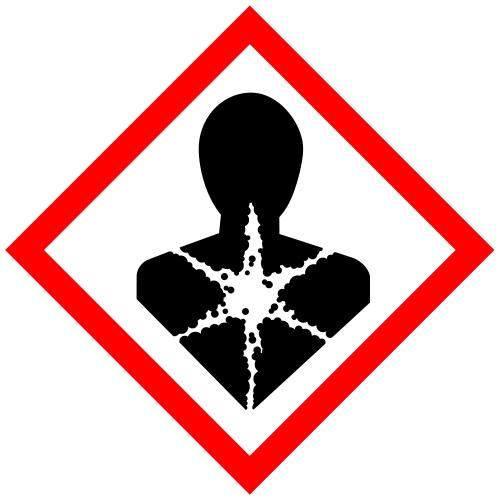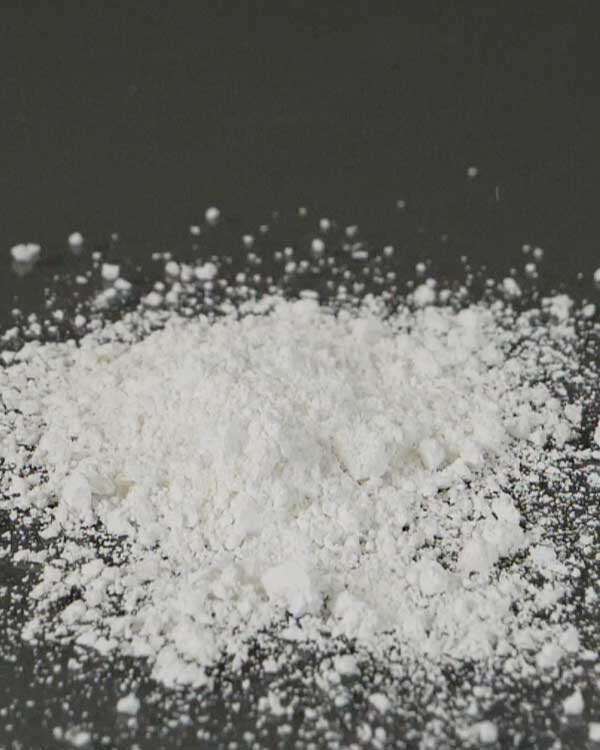Silica
This is a high-purity, natural crystalline silica that comes from quartz quarries in Oklahoma. It is a fine ground silica sand that is inherently inert, white, bright, and at least 99.2% silicon dioxide. Special processing assures a controlled particle size distribution, eliminating excessively coarse and fine particles. These properties, combined with its inertness and low cost, make silica an excellent filler and extender for paint.
The hardness and inertness of silica improve resistance to wear, burnish, abrasion and stains. The narrow size distribution and bright white color minimize binder demand and yield an excellent color. It is also often used to replace as much as 50% of titanium dioxide in paint formulations.
Silica (SiO2) is a compound formed from silicon and oxygen. Because oxygen is an abundant element and silicon is the second most abundant element in the Earth's crust, the formation of silica is quite common in nature. Silica sand, the substance used to derive pure silicon, is made of quartz, which is the most common form of silica found in nature. Crystalline silica exists in seven different forms. The three major forms, quartz, cristobalite, and tridymite, are stable at different temperatures. Within the three major forms are subdivisions. Crystalline silica is ubiquitous, being in rocks from every geologic era and from every location around the world.
Recommended Uses
Add silica to paint and mediums to create textural and bodying qualities in oil paint without affecting the color. Silica has a little color in drying oil, so it can be added to oil paint without affecting the tint of the color. Due to its hardness, it tends to add a discernible texture to paint. Add to chalk or gesso to add texture or 'tooth' in chalk or gesso grounds.
| Properties | |
| Description | Fine dry-ground silica with a closely-controlled particle size distribution. |
| Source | Mill Creek, Oklahoma |
| Chemical Analysis | |
| Silicon Dioxide (SiO2) | 99.4% |
| Typical Physical Properties | |
| Median Particle Size | 1.6 microns |
| Particles Finer than 5 Microns | 96.3% |
| Hegman | 8 |
| Retained on 325 Mesh Screen | 0.003% |
| Hardness (Mohs) | 7 |
| Yellowness Index (ASTM E313)* | 1.6 |
| Reflectance | 94.5% |
| pH | 6.7 |
| Oil Absorption | 42 g oil / 100 g pigment |
| Specific Gravity | 2.65 |
| Bulk Density, Compacted | 41.0 lbs./ft3 (656 kg/m3) |
| Bulk Density, Loose | 36 lbs./ft3 (576 kg/m3) |
* The Yellowness Index is a number calculated from spectrophotometric data that describes the change in color of a test sample from clear or white to yellow. This test is most commonly used to evaluate color changes in a material caused by outdoor exposure.
Health and Safety
WARNING: This product contains crystalline silica, which can cause silicosis (an occupational lung disease) and lung cancer. For detailed information on the potential health effects of crystalline silica, see the Material Safety Data Sheet.
| SKU | 510-15SLC |
|---|---|
| Brand | Rublev Colours |
| Vendor | Natural Pigments |
| Processing Time | Orders ship on Tuesdays and Thursdays. |
DANGER! CONTAINS CRYSTALLINE SILICA. Causes lung damage through prolonged or repeated exposure by inhalation. Do not breathe dust. Read the SDS for all cautionary statements. Conforms to ASTM D 4236.
Hazard Pictograms
 |
| GHS08: Serious Health Hazard |
Signal Word: Danger
Hazard Designation
H372 Causes damage to lungs through prolonged or repeated exposure by inhalation.
Safety Designation
P260 Do not breathe dust.
P285 In case of inadequate ventilation, wear respiratory protection.
P501 Dispose of contents/containers in accordance with local regulations.


